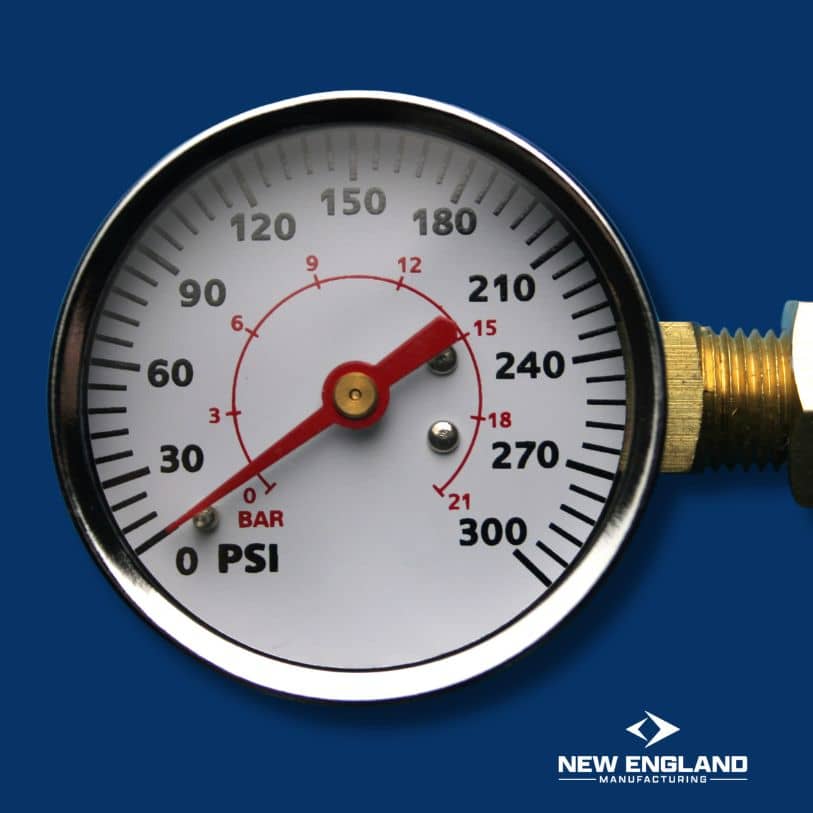The Crucial Role of Pressure Gauge Calibration
Accurate measurements are the bedrock of efficiency, safety, and quality in manufacturing and industrial operations. Pressure gauges, which monitor the force exerted by fluids and gases, are indispensable in many industries. These instruments ensure that systems operate within safe parameters, prevent potential failures, and maintain consistent product quality. However, pressure gauges, like any tool, can drift from their original accuracy over time. This is where the critical process of pressure gauge calibration comes into play.
Regular calibration of pressure gauges is not just a good practice; it’s a necessity. Whether in the food industry, pharmaceuticals, oil and gas, or any sector where precise pressure measurements are crucial, ensuring your gauges are correctly calibrated can mean the difference between smooth operations and costly downtime. This article will explore why regular pressure gauge calibration is essential for accurate readings and how it impacts various industrial processes.
Why Pressure Gauge Calibration Matters
Pressure gauges are subjected to various environmental and operational conditions that can affect their accuracy. Over time, exposure to vibrations, extreme temperatures, and regular wear and tear can lead to measurement drift. Even the most robust gauges are not immune to these influences. This drift can result in inaccurate readings, which can have significant consequences.
A pressure gauge providing incorrect data can lead to improper system adjustments. In critical applications, such as chemical processing or pharmaceutical manufacturing, this inaccuracy can compromise product quality or, worse, lead to unsafe conditions. Regular pressure gauge calibration ensures that your instruments provide accurate readings, maintaining the integrity of your processes and ensuring compliance with industry standards.
Safety and Compliance
One of the primary reasons for regular pressure gauge calibration is safety. Many industrial processes involve high pressures, which, if not accurately monitored, can pose severe risks. Incorrect readings might lead to pressure levels that exceed safe operating limits, potentially resulting in equipment failure or dangerous accidents.
Moreover, industries are often subject to stringent regulatory standards. For instance, the American Society of Mechanical Engineers (ASME) and the Occupational Safety and Health Administration (OSHA) have specific guidelines regarding the maintenance and calibration of pressure-measuring instruments. Regular calibration helps companies comply with these regulations, avoiding legal repercussions and ensuring a safe working environment.
Enhancing Product Quality
In manufacturing, consistent product quality is paramount. Pressure gauges are crucial in processes like extrusion, injection molding, and chemical reactions, where precise pressure control is vital. An inaccurate gauge can lead to manufacturing delays, resulting in products that do not meet quality standards.
Regular pressure gauge calibration helps maintain the consistency and reliability of production processes. By ensuring accurate pressure measurements, companies can produce high-quality products, minimize waste, and reduce the risk of costly rework. This consistency also enhances customer satisfaction, as products meet their expected specifications.
Cost Savings
While some may view calibration as an additional expense, it is, in reality, a cost-saving measure. Uncalibrated pressure gauges can lead to inefficiencies, such as excessive energy consumption or frequent repairs due to undetected pressure anomalies. These inefficiencies can escalate operational costs over time.
By investing in regular pressure gauge calibration, companies can identify and rectify measurement drifts early, preventing minor issues from becoming major problems. This proactive approach reduces downtime, extends the lifespan of equipment, and ensures optimal energy usage. In the long run, the savings from improved efficiency and reduced maintenance far outweigh the costs of calibration.
Precision in Critical Applications
Specific industries rely on precise pressure measurements to ensure the safety and efficacy of their products. In the pharmaceutical industry, for example, accurate pressure control is essential during the manufacturing of medications. An incorrect pressure reading can alter the properties of a drug, affecting its effectiveness and safety.
Similarly, in the food and beverage industry, maintaining the correct pressure during pasteurization is vital to ensure product safety and quality. Regular pressure gauge calibration guarantees that these critical applications operate within the required parameters, safeguarding both consumer health and company reputation.
Calibration Procedures
Understanding the calibration process helps appreciate its importance. Calibration involves comparing the readings of a pressure gauge against a known standard. This standard is typically a more precise instrument, known as a reference gauge, which has been calibrated to national or international standards.
The process begins by subjecting both the gauge and the reference to the same pressure conditions. The readings are then compared, and any discrepancies are noted. If the gauge’s readings deviate from the reference, adjustments are made to bring it back into alignment. This process is repeated across the entire range of the gauge to ensure accuracy at all measurement points.
Frequency of Calibration
How often should pressure gauges be calibrated? The answer depends on several factors, including the criticality of the application, the environment in which the gauge operates, and manufacturer recommendations. In general, high-precision applications or those operating in harsh environments may require more frequent calibration.
Most manufacturers recommend calibrating pressure gauges at least once a year. However, for critical applications, semi-annual or even quarterly calibration might be necessary. It’s essential to develop a calibration schedule based on the specific needs and conditions of your operations.
Choosing a Calibration Service
Selecting the right calibration service is crucial for ensuring accurate results. Look for a service provider with a strong reputation, certified technicians, and the necessary equipment to perform thorough calibrations. The provider should follow industry standards, such as those set by the International Organization for Standardization (ISO), to ensure the highest level of accuracy.
Additionally, consider the turnaround time for calibration services. Minimizing downtime is important, so choose a provider that offers quick and reliable service. Some companies, like New England Manufacturing, also offer on-site calibration services, which can be a convenient option for minimizing disruptions to your operations.
Record Keeping and Traceability
Maintaining accurate records of calibration activities is essential for traceability and compliance. Detailed records should include the date of calibration, the technician’s name, the equipment used, and the results of the calibration. These records can help identify trends, such as recurring issues with specific gauges, and assist in planning future calibrations.
Proper record-keeping also ensures compliance with regulatory requirements. During audits or inspections, having comprehensive calibration records readily available can demonstrate your commitment to maintaining accurate and reliable pressure measurement systems.
Conclusion
Regular pressure gauge calibration is not just a routine maintenance task; it is a critical component of ensuring accurate readings and maintaining the integrity of industrial processes. By prioritizing calibration, companies can enhance safety, comply with regulatory standards, improve product quality, and achieve significant cost savings.
At New England Manufacturing, we understand the importance of precision in every operation. Our expert calibration services are designed to help you maintain the accuracy of your pressure gauges, ensuring your processes run smoothly and efficiently. Remember, accurate measurements are the foundation of success in any industry. Investing in regular pressure gauge calibration is an investment in the reliability and safety of your operations.
Read More:
Types of Pressure Gauges

Mark R.
With a strong foundation in industrial safety and fire protection systems, Mark R. specializes in creating clear, technical, and compliance-driven content. Writing for SafeTech Reports, he covers topics such as fire hydrant testing, PPE protocols, emergency procedures, and smart technology integration in safety systems. His work ensures that professionals stay informed on the latest regulations, best practices, and emerging trends in safety and infrastructure maintenance.
Get in touch
We usually respond within 24 hours
Need Reliable Water Flow Test Equipment?
For over 70 years, New England Manufacturing has been the trusted source for fire hydrant and water flow testing kits. From pitot gauge kits to custom test kits, we provide precision, durability, and expert calibration to meet your needs.
- Custom-built test kits
- High-quality pressure gauges
- Reliable calibration services


